FRIDAY, MARCH 6, 2015 PUBLIC MEETING, FORD ALUMNI CENTER, GIUSTINA BALLROOM
8:00 – Board members meet with faculty. Faculty Trustee Susan Gary (Law) gives her talking points and etiquette tips here.
I met with two board members and about 10 faculty. It was a very interesting meeting. Confidence inspiring really. They didn’t ask me too, but I said I wouldn’t blog about particulars, so I won’t. I can say nobody paid any attention to Susan Gary’s talking points, and we spent most of the 2 hours talking about classrooms, labs, and teaching technology, what to do about athletics, and how AAU membership drives resource allocation between the sciences and humanities.
10:00 am (other times approximate) – Reconvene Public Meeting – Verification of quorum
Invited Presentations:
Talks on Diversity, Innovation, and Athletics. While the other presenters and many students and faculty are in the room with the board, listening to each others talks and the board’s questions, AD Rob Mullens could give a rip about the academic side. He’s out in the hall, lounging about:
8. University of Oregon Diversity Framework – Dr. Yvette Alex‐Assensoh, Vice President for Equity and Inclusion
Go Yvette! She asks “What if” the university addressed racial, class, sexual diversity seriously… .
IR staff report here.
She’s got a long list of successful programs, student pipeline, dual-faculty hiring funds, etc.
Great report, well received by trustees.
9. Innovation, Tech Transfer and Economic Development – Dr. Brad Shelton, Interim Vice President for Research and Innovation; Dr. Chuck Williams, Associate Vice President for Research
This is dreadful. Shelton manages to wander between condescending and boring. And I’m a guy with a longstanding interest in nitrogen fixation. Coltrane jumps in to try and save Brad, or at least end this quickly. Chuck Williams seems on top of things though. Good presentation on licensing revenue, etc. Most of this has been coming from the College of Ed. Now Shelton’s taken over again. Manages to make some cool science pretty boring. Lillis tells him to wrap it up, but Shelton is still talking, and talking, and talking …
The board looked happier yesterday, when the students were screaming at them. Time for another emergency bathroom break?
Q from trustee, about EGI’s recent public offering. How much did UO get? A: Nothing.
10. Department of Intercollegiate Athletics – Rob Mullens, Director of Intercollegiate Athletics; Eric Roedl, Executive Senior Associate Athletic Director for Finance and Administration
Last week UO undergrad Andrew Lubash – the Truman Scholar that Andrew Marcus highlighted in his remarks to the board on Thursday – led UO’s student government in two votes to reject the Mullens and Roedl attempt to take 10% more in student fees for athletics:
Dear Students,
On Saturday, February 21st, the ASUO Senate will be allocating over $15 million of your student fee dollars to pay for programs, departments, contracted services, the EMU, and of course, football and basketball tickets from the Athletic Department.
Out of the $15 million ASUO budget, students spend $1,695,348 paying for the football and men’s basketball ticket lottery. This comes down to about $71 per year that students pay through their mandatory fees for the chance to go to our athletic events. We, the undersigned, think this is too high. …
And on Wednesday, the UO Senate voted unanimously to make the Duck Athletic Department make long overdue payments to UO’s academic side:
Payments by Athletic Department for General Academic Purposes
Section I
1.1 WHEREAS in 2004, the UO Athletics Task Force, which included President Dave Frohnmayer, Athletic Director Bill Moos, NCAA Faculty Athletics Representative Jim O’Fallon, the Senate President, and many Senate and faculty representatives, concluded a three-year study of UO athletics with a report that stated as recommendation #1,
“The Task Force and the Athletic Department recommend a voluntary financial contribution by
athletics to the Presidential Scholarship fund.”[1]; and …
1.10 WHEREAS during that time the athletic department has not made any such contributions and in fact has received increasing subsidies from the academic budget; and ….
Section II
2.1 BE IT HEREBY MOVED that the President shall provide the Senate with a budget and a schedule for implementation for payments from the Athletic Department budget for the support of general academic purposes no later than the first Senate meeting of May 2015, and that this schedule shall include a payment of no less than 0.5% of total Athletic Department revenue for the 2015-16 FY, and increasing to no less than 1% for the 2016-17 FY, and increasing in subsequent years by no less than 0.5 percentage points, until it reaches 3%.
Some might say that Rob Mullens, Eric Roedl, and Dana Altman are leeches, feasting on the blood of UO students:
But I prefer to think that they are humans who face some really unfortunate incentives. Take Rob Mullens, for example:
The UO Board of Trustees could have written incentives into his contract to reward him for reducing the athletic departments costs, or for making payments for academic scholarships.
Instead they wrote him a contract that rewards him for winning games, no matter what it costs. So is it any wonder that he’s bleeding UO dry? It’s what he’s paid to do.
A rational contract – the contract Chuck Lillis, or any other CEO on the UO board would have written if their own money was at stake – would reward Mullens for delivering profits that would help further UO’s academic mission.
But it’s not the board’s money at stake. It’s the students’ money. And the board wrote him a contract that rewards him for sucking more money out of UO and spending on sports. And he’s delivering, and we’re paying.
Mullens and Roedl will presumably come in with a slick powerpoint. They don’t want the board to see it first though, in case they might have time to think up some tough questions:
Presentation: Yup, they’ve got the usual fancy powerpoint and a glossy, bound handout with a duck on it – but only for the trustees.
Mullens: Culture of excellence, yada yada. Usual puff stuff on student-athletes, mixing non-revenue students in to make the average look good.
Mullens: We’ve used this success and leveraged social media to create a national, international brand. So when there’s a basketball gang rape allegation and we botch how it’s handled by putting the players in the NCAA tournament and failing to transfer them quietly before the sports reporters find out, it now damages the entire university, globally.
Mullens on NCAA governance changes: This was all about student-athlete welfare. Honestly. 65 power schools can now vote to give up to $2000 to players. This helps us protect the coaches multi-million salaries from congressional action such as the threatened loss of their lucrative tax exemption.
Fiscal challenges: We rely on football. 16th largest expenses of all NCAA programs.
Basketball revenue is in the shitter, and we’ve run up against price resistance for football tickets No increase this year for regular fans. So Eric Roedl tried to extort another 10% from the ASUO student government instead. But student Andrew Lubash told him to take a hike, and now Roedl’s got a tough choice.
Right on cue, Connie Ballmer asks Mullens about student tickets. Mullens gives pat answer, she doesn’t follow up.
Lillis asks about stadium expansion. Mullens waffles. Hard to justify, given their inability to raise prices now.
Kurt Wilcox asks about TV revenue and where the PAC-12 Network revenue goes.
We took a hit because we had to give back money to Comcast. So, no net revenue for UO. Check the San Jose Mercury for background.
Mullens: But just in case, we want to add some women’s sports to soak up any extra money before the academic side gets it.
Trustee asks about financial exposure to lawsuits. Is any money set aside in trust funds? Mullens: No, we spend all the money on our own salaries, plus of course free sandwiches for athletes in the Jock Box. There’s no follow up question? This counts as doing due diligence?
Ballmer asks about bowl game revenue. Mullens: All revenue is shared equally w/in conference whether we are in a bowl or not. We get expense money but after we pay the coaches we’re behind $100K or so.
Trustee: So compared to other schools, you take less money from academic side than most other schools? Mullens: Yes.
Faculty Trustee Susan Gary has no questions, of course.
And unfortunately Student Trustee Helena Schlegel had to leave for class.
Lillis: Meeting adjourned.
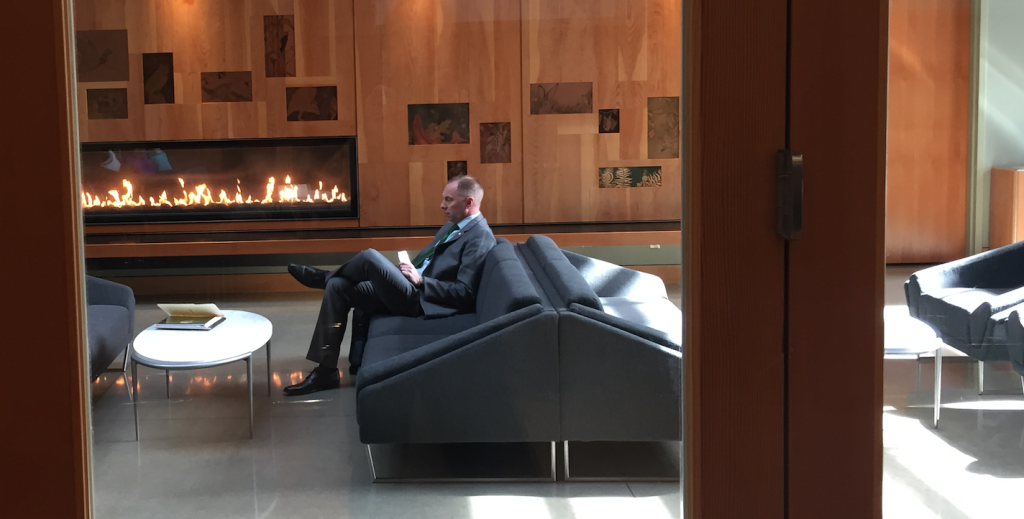
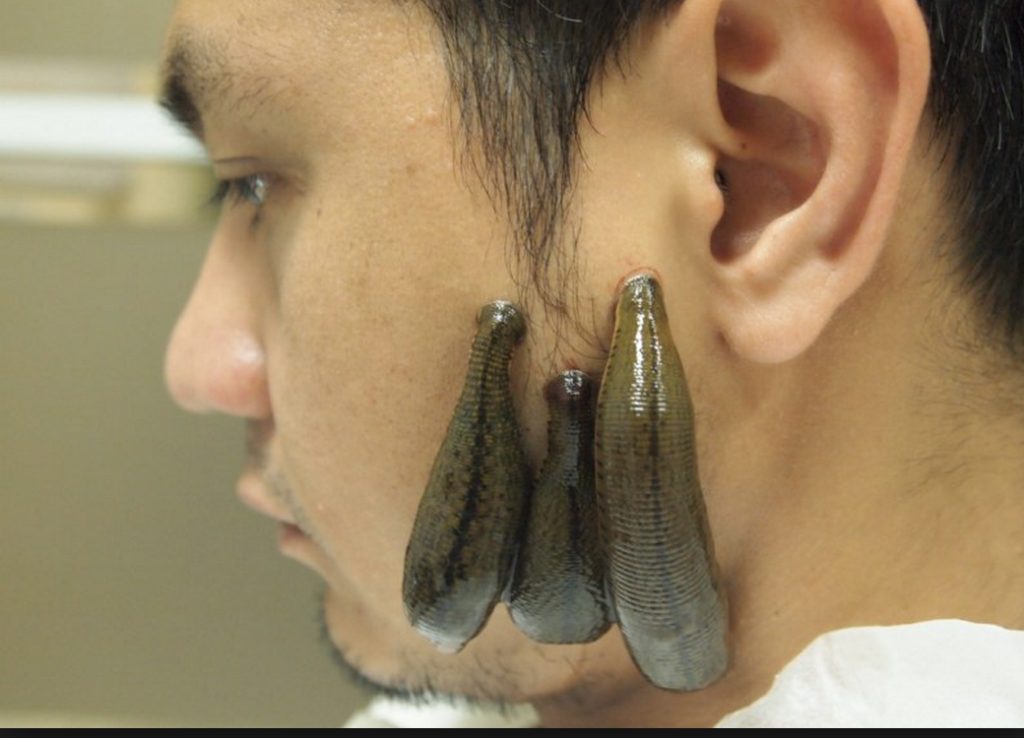
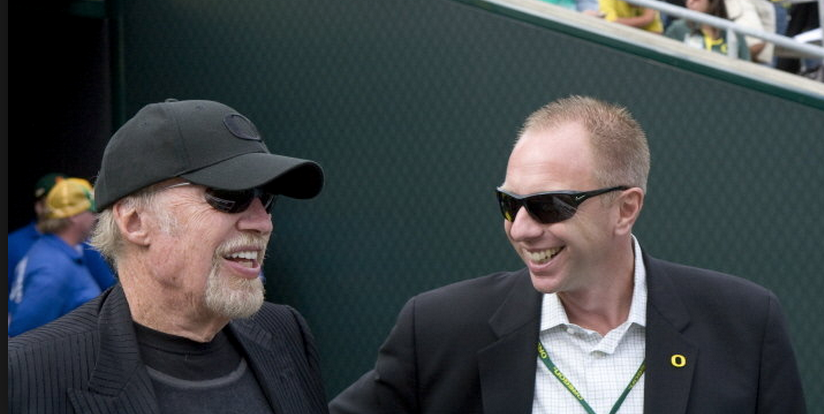
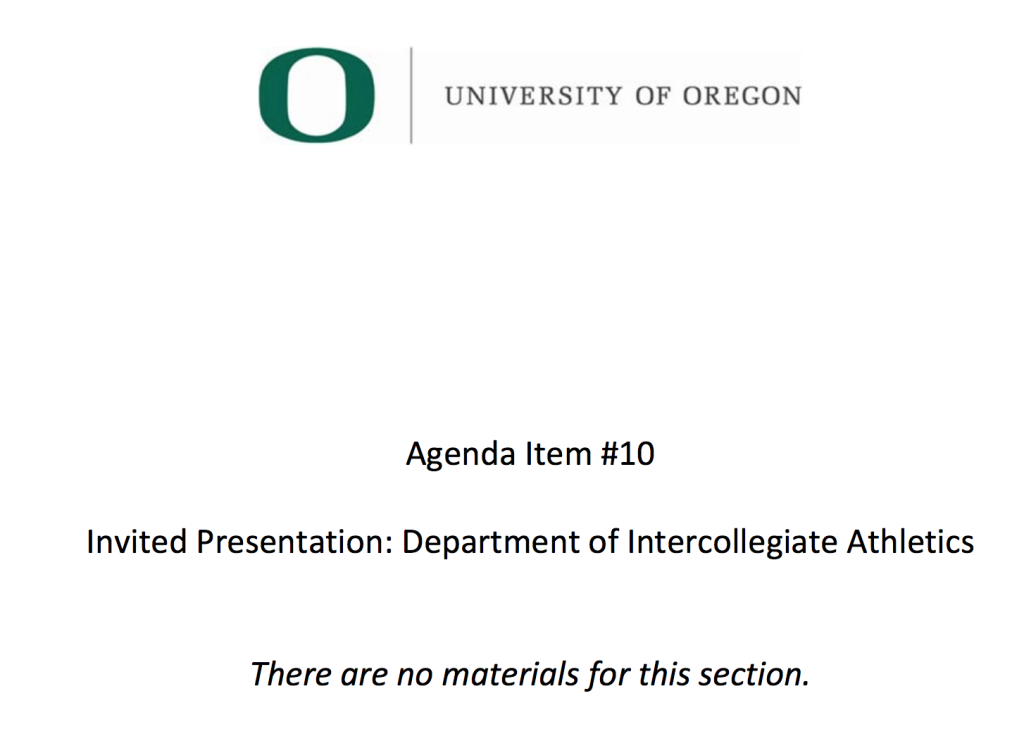
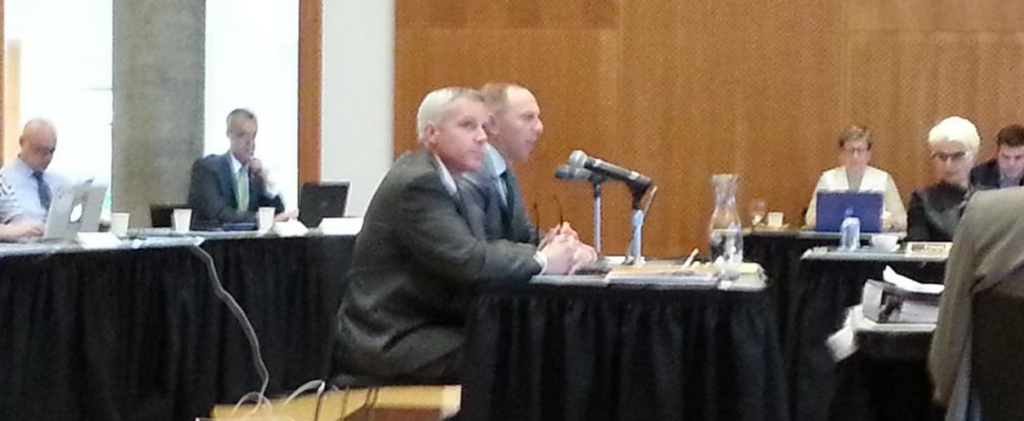
I must confess to some schadenfreude about Shelton’s presentations. Is UO currently looking for a real VP of Research & Innovation? I didn’t see a listing at jobs.uoregon.edu, but there was a listing for “President.” (Seriously.)
Why, what happened?
Last I heard both VPRI and CAS Dean searches are on hold until we have a new Pres.
“I can’t speak to those figures. I only live in the athletic figures.” Rob Mullens’ response to a question about the differential between the $4,000 spent for academic tutoring per UO athlete and the $225 spent per UO student is the most concise statement that I have read about the athletic / academic divide at the University of Oregon. The fact that David Frohnmeyer signed an agreement that produced this sums up his legacy to the University. The fact that nothing has been done about it by any president or provost since says something about how the institution’s values have been, apparently permanently, changed. Perhaps it is time for a discrimination suit by a member of the “general run of student.”
The divide has long been there. But back in the 1970s-1980s — when the Ducks were losing and the Athletics budget was fraction of today’s — nobody cared. Athletics, left to go its own way, long ago left the academic side in the dust in terms of visibility, fundraising, income, salaries and (dare I say it) national prestige. It’s futile to imagine that they will be reined in now. That said, I hope the $3 million happens — at least they should pay for their own tutoring.